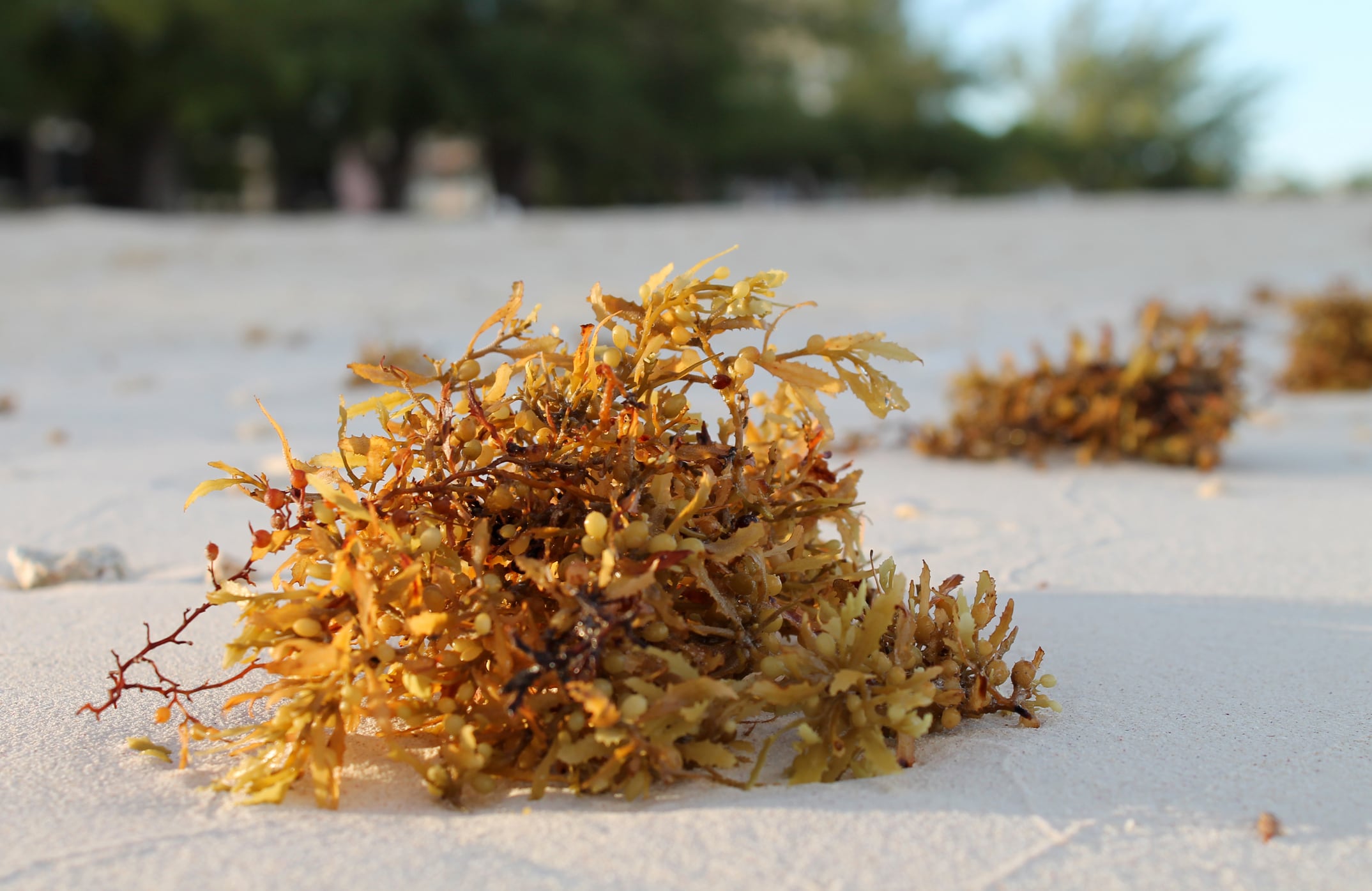Collaborating with researchers from the Marine Biomedical Science and Technology Innovation Platform of Lin-Gang Special Area, International Combined Research Center for Marine Biological Sciences, they developed and tested a marine-derived molecule called COS-diDA.
They created this molecule by bonding dopamine to β-chitooligosaccharides (COS) extracted from Sargassum, a type of brown seaweed.
The lab results subsequently showed that COS-diDA significantly reduced inflammation and irritation markers in human skin cells.
As such, they noted that this marked an important step towards developing a safe, natural ingredient to treat sensitive skin and inflammation-related issues.
COS-diDA: What it is and how it is made
COS-diDA, short for “chitooligosaccharide-di-dopamine amide”, is made by chemically bonding two dopamine molecules to COS, which are low molecular weight sugars derived from chitosan, a natural polymer found in crustacean shells.
However, the COS in this study came from marine Sargassum instead of traditional shellfish sources, thereby reducing allergen risk.
To synthesise COS-diDA, the researchers combined COS and dopamine in a laboratory using a chemical process involving mild alkaline conditions. The final product was verified using several techniques, including ultraviolet spectroscopy, infrared analysis, and mass spectrometry.
By attaching dopamine, which is known for its antioxidant and adhesive properties, the researchers improved the bioactivity of the COS. This made the compound more effective at reducing inflammation and sticking to skin cells.
Targeting inflammation
The study focused on how COS-diDA affected TRPV1, a protein in skin cells that plays a key role in sensing pain, heat, and irritation. TRPV1 is also known as the capsaicin receptor, as it is activated by the compound in chili peppers that causes a burning sensation.
To test the anti-inflammatory effects of COS-diDA, the team used human keratinocyte cells (HaCaT), a standard skin cell model. They first triggered inflammation in these cells using capsaicin (CAP), then treated them with different concentrations of COS-diDA.
The results showed that COS-diDA reduced TRPV1 protein levels in the cells by up to 73%, depending on the dose. It also lowered the release of three key inflammatory cytokines — IL-1α, IL-6 and IL-8 — that are typically elevated in irritated or inflamed skin.
Reducing TRPV1 and these inflammatory markers made for strong evidence that COS-diDA could help calm irritated skin. It not only relieved discomfort but showed potential to help improve long-term skin health.
Cell survival and no toxicity at key doses
Another key finding was that COS-diDA did not harm skin cells. In fact, at certain concentrations, it helped the cells recover from capsaicin-induced stress.
At 0.8 μg/mL, COS-diDA showed the best performance, improving cell survival, reducing inflammation markers, and lowering TRPV1 levels more effectively than the synthetic reference ingredient used for comparison, trans-4-tert-butylcyclohexanol (TTBC), a known TRPV1 inhibitor.
Higher doses of COS-diDA (3.2 μg/mL) still provided benefits, though their effect plateaued or slightly declined, suggesting an optimal concentration range for skincare formulations.
Strong adhesion and anti-inflammatory benefits
Beyond its anti-inflammatory activity, COS-diDA also showed good adhesion to cell surfaces, thanks to the dopamine’s sticky catechol groups. This could help skincare products stay on the skin longer and deliver benefits more effectively.
Scanning electron microscopy confirmed that the compound formed a smooth, dense structure with a sponge-like appearance — ideal for forming a protective layer on skin. This is promising, as many natural ingredients lack adhesion, which limits their performance in cosmetics.
Implications for skin care and cosmeceutical development
Sensitive skin affects a growing number of consumers due to environmental stress, lifestyle factors, and auto-immune conditions.
The cosmetics and cosmeceuticals industries are increasingly searching for natural alternatives to synthetic anti-inflammatory agents, which may cause side effects or lack consumer trust. This study provides strong initial evidence that COS-diDA could meet that need.
The authors suggested that COS-diDA could be added to creams, serums or lotions aimed at calming red, itchy, or inflamed skin. Given its marine origin and natural composition, it may appeal to brands focused on clean, plant-based or sustainable products.
However, the researchers cautioned that further testing was needed. As this was an in vitro study, clinical trials would be required to confirm the safety and effectiveness of COS-diDA on human skin.
Nevertheless, they noted that the lab data was promising and pointed to real commercial potential.
What’s next?
The researchers plan to explore how COS-diDA behaves in real-life skin models and evaluate how it interacts with other skin care ingredients. They are also looking at how it could be scaled for manufacturing without losing activity.
They concluded: “COS-diDA possesses anti-inflammatory properties and effectively suppresses the expression of TRPV1 in HaCaT cells stimulated by CAP. Given its promising therapeutic potential in anti-inflammation and pain relief, COS-diDA deserves further investigation and exploration as a potential candidate drug.
“Furthermore, it can be regarded as a supplementary component in cosmetics to augment its anti-inflammatory efficacy.”
Source: Cosmetics
“Marine-Derived COS-diDA for Sensitive Skin Treatment: Synthesis, Traits, and Anti-Inflammatory Effects”
https://doi.org/10.3390/cosmetics12020035
Authors: Yue Su, et al.




